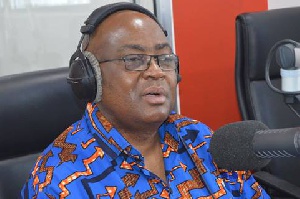Pollster Ben Ephson has stated that the present method of allowing individuals to serve as witnesses for persons who have no nationally recognised identification document so that they can register as voters is much worse than getting one’s name on the electoral roll through the use of a health insurance cards.
The Managing Editor of the Daily Dispatch newspaper said a recent Supreme Court ruling ordering the Electoral Commission (EC) to re-register voters who presented National Health Insurance Scheme (NHIS) cards in 2012 as proof of nationality, will not keep out ineligible persons, such as aliens, from appearing on the register.
“If we want to keep out foreigners, the current system is worse than [using] health insurance [cards]. If I want to bring 10 Togolese or 20 Togolese, I will bring them and ask two party members who are registered voters to support them. What work have you done? Work done is zero. It’s even worse than [registering with] health insurance card. If I want to bring in aliens, I will ask two of my party supporters who are registered voters to support them.”
He said for that reason, he was at a loss over why some persons and political parties were excited over the apex court’s judgment, which was given on Thursday May 5, 2016.
“Those jubilating, I don’t understand them. Why are they jubilating? The Supreme Court never said explicitly that those who use health insurance cards to register should be disenfranchised. It asked the Electoral Commission to clean up the register and all those who will be disenfranchised should be given the opportunity to register again,” Mr Ephson told Chief Jerry Forson on Accra100.5FM on Monday May 9 on Ghana Yensom, the station’s morning show.
Mr Ephson added that research he had carried out indicated that about 96,000 people registered as voters in the Ashanti Region with NHIS identification in 2012, with 10,000 doing so in the Volta Region, while 42,000 and 32,000 used the document in the Greater Accra and Eastern Regions, respectively.
He said the order to the EC to remove the names of persons who found their names on the voters’ register via NHIS cards would not give any political party an advantage in the 2016 elections. He explained that after interviews with some 800 people at the University of Ghana, as part of a research he undertook, he realised many people who registered as voters only needed a reliable identification to open bank accounts, apply for passports, among others, and not necessarily to vote for any political party.
“That is why I am saying those who were jubilating didn’t know what they were doing,” insisted Mr Ephson, who refrained from mentioning any political party.
He said the political parties expressing relief with the Supreme Court judgment and believing it will serve their interests “should tickle themselves and go ahead and laugh”.
General News of Monday, 9 May 2016
Source: classfmonline.com













